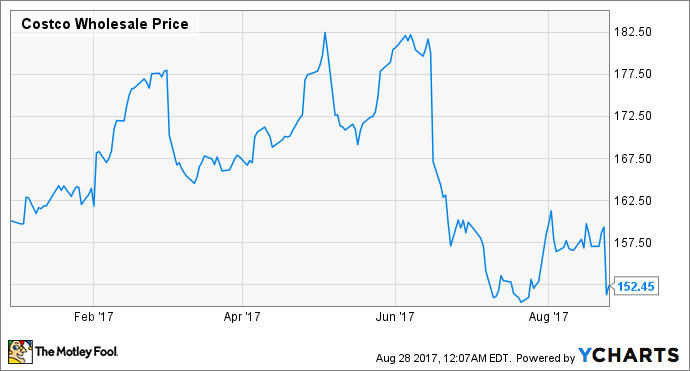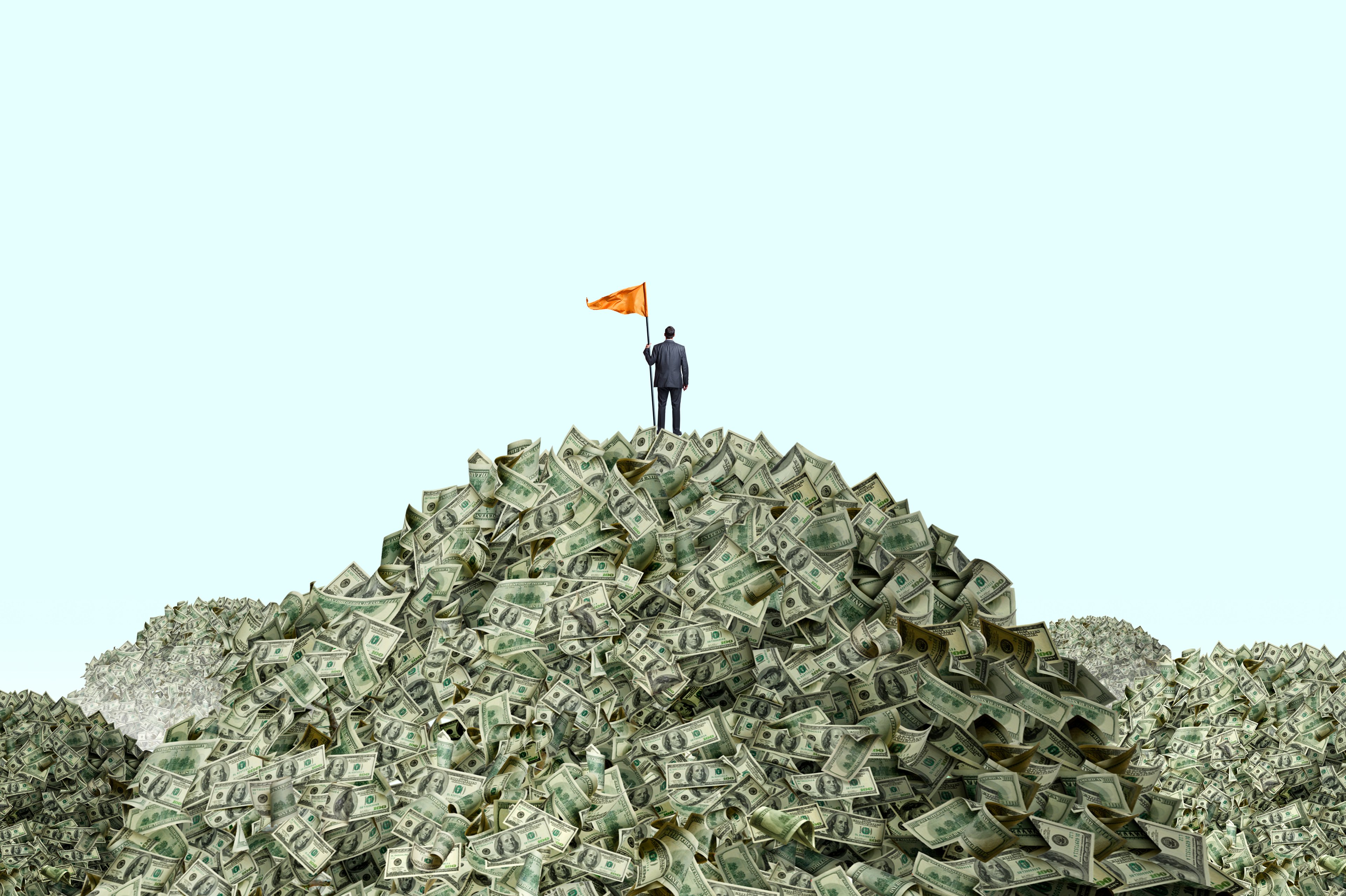Last week, federal regulators and Whole Foods shareholders both approved Amazon.com's (AMZN +1.60%) acquisition of the natural foods giant. With those hurdles out of the way, Amazon quickly announced that it will cut the prices for some key items. In the future, it plans to implement more price cuts and introduce a discount for Prime members.
This news sparked a fresh sell-off in other grocery-related stocks, including Costco Wholesale (COST +2.95%). In total, Costco shares have plunged more than 16% since early June. However, investors are probably overestimating the impact of this deal on Costco's business.
Costco Wholesale YTD Stock Performance, data by YCharts.
Costco is on a roll
In early 2016, Costco Wholesale's sales momentum seemed to be cooling, following years of explosive growth. For the first several months of that year, Costco's comp sales growth ranged between 1% and 4%, excluding the impact of currency fluctuations and gasoline price deflation.
This was a big change from the 6%-7% adjusted comp sales growth that Costco had been posting prior to 2016. Some of the deceleration in sales growth was caused by price deflation. Yet there also seemed to be a genuine slowdown in Costco's underlying growth rate.
However, sales growth has rebounded during 2017. In fact, Costco has run off a string of strong results in the last few months. Adjusted comp sales rose 4.5% in May, 6.5% in June, and 5.3% in July.

Costco's sales growth has accelerated recently. Image source: Costco Wholesale.
Costco's earnings momentum is also accelerating. In fiscal 2016, adjusted earnings per share increased by less than 2%. By contrast, in its most recent quarter, Costco reported adjusted EPS of $1.40, up 13% from $1.24 a year earlier.
The Amazon-Whole Foods threat is overblown
On Monday morning, Amazon officially closed its acquisition of Whole Foods and began to cut prices for certain items. But while a few staples saw price cuts of up to 43%, most prices haven't changed. This suggests that Amazon is following a traditional retail tactic of offering low prices on a few targeted items in order to drive store traffic.
That said, Amazon is likely to continue trimming prices at Whole Foods going forward. Some analysts think that by doing so and by integrating the natural grocer into the Prime membership program, Amazon can upend the traditional grocery store market. Others believe the Amazon-Whole Foods tie-up only really threatens grocers that specialize in natural and organic foods.
Either way, Costco is likely to emerge unscathed. After all, it will continue to enjoy huge cost advantages over Whole Foods, allowing it to offer lower prices.
Indeed, in fiscal 2016, gross margin was a measly 11.3% at Costco Wholesale, compared to 34.4% at Whole Foods. Even if Whole Foods significantly reduced its markups across the entire store, it still couldn't match Costco's prices without incurring massive losses.
It's also important to remember that Costco earns nearly all of its income from membership fees. Its members are extremely loyal; in the U.S. and Canada, the renewal rate routinely exceeds 90%. Beyond that, Costco charges just enough for the items in its stores to recoup its very low operating costs and earn a tiny profit.
This could be a great time to buy
Costco Wholesale stock currently trades for 26 times its projected earnings for the 2017 fiscal year (which just ended on Sunday). That represents a premium to the broader market, but a smaller premium than what has been typical for Costco stock in recent years.
Costco Wholesale P/E Ratio (Forward), data by YCharts.
This is somewhat surprising, because Costco is poised to maintain its strong earnings growth rate in fiscal 2018. The company raised its membership fees in the U.S. and Canada earlier this year. When the fee increase is fully rolled out, it is likely to boost operating income by more than $250 million (roughly 7%). Costco will get more than half of that benefit in the coming fiscal year.
Additionally, Costco will continue to profit from the growing popularity of its new co-branded U.S. credit card (issued by Citibank). The new card's considerable benefits -- which are only available to Costco members -- will also serve to reinforce customer loyalty.
In other words, investors currently have an opportunity to buy Costco stock at a smaller-than-normal premium, just as its EPS growth is accelerating. If Costco's stock price remains depressed, I plan to invest in this rock-solid growth company within the next few weeks.









